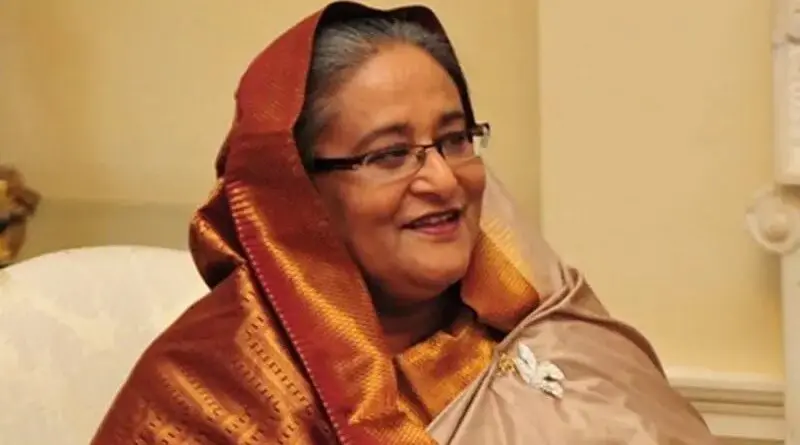Recent Disturbing Events Inside Bangladesh Demand Change – OpEd
In the last few weeks Bangladesh has seen a series of student protests in much of the country in which the high school going students became vocal about the reckless driving of bus drivers that continues to kill so many every day. The rallies were peaceful and drew support from everyone including members of the ruling Awami League.
As is common in nasty politics of Bangladesh, however, there were claims and counterclaims of infiltration from outsiders to give the protests a political flavor. Published reports in the media suggest that the rallies were viciously attacked sometimes by goons within the BCL (Bangladesh Chatra League), the student affiliate of the ruling party, resulting in injuries of many students.
Sadly, the police forces were seen nonchalant or inactive to stop such violent actions by pistol, sword, machete, chain and rod-carrying goons – whatever party affiliation they may have. News reports also show that peaceful student demonstrators who had maintained a safe distance away from the police cordon and had sat on the ground were showered with tear gas and beaten by police batons. Such unprovoked acts by the police is simply shameful and unacceptable in any democracy!
Naushava, an actress, who had tried to agitate (now admittedly, based on fake news about killing and abduction) the student community, was arrested a few days earlier for distorting casualty figures, or falsifying truth about students being killed, abducted or beaten.
Minister Shahjahan Khan has displayed a very poor taste in dealing with students’ suffering with stupid and unforgivable remarks. He was also rebuked within the government for his curt remarks. He has since apologized, although many Bangladeshis want him to resign.
Prime Minister Sheikh Hasina’s popularity has suffered badly in recent weeks because of appearing too indecisive or flip-flopping on such grave issues, starting with the quota system and the student protests. I strongly suspect that like her father she is surrounded now by bad advisers whose interest has little in common with the goodwill of the people of Bangladesh. Many Bangladeshis see her as more interested about her own family, the dead memories of her slain family members – from Bangabandhu to her youngest brother Sk. Russell – than common masses, including the recently dead students. She has a very unfavorable, negative perception these days. Unless she is able to arrest such negative perceptions about her leadership and rein upon the unruly elements within the student affiliate BCL, which is now called the ‘kutta bahini’ by many independents and non-partisans, I am told that if a fair election were to be held today or this month, her party would not be able to form a government.
Given that Bangladesh is due to have its national election this year in the fourth quarter, unless Sk. Hasina finds ways to amend her ways and replace the negative perceptions about her party and the student party affiliate (BCL), her party’s future looks decisively bleak.
The sad reality in Bangladeshi politics, however, has been that once in power the ruling party fails to learn from its past mistakes and likes to live within a self-imposed cocoon or bubble that cannot separate the reality from the untrue, make-beliefs that are fostered and nurtured by sycophants (locally called the chatookars or chamchas).
The same sycophancy led to separating Bangabandhu from Bangladeshi ordinary Joes – the Salimullah and Kalimullahs – and ultimately sealing the fate of the nation under military rule for the next 16 years after Sk. Mujib and most of his family members were slain by disgruntled members within the military. One would have thought that such past lessons are not forgotten in the minds of Sk. Hasina. But personally, I am not sure any more.
For the last six weeks, not counting weeks before my arrival in Bangladesh, I have been anxiously trying to reach out to her via various means, which included contacting her own personal secretary, to discuss a plethora of issues that affect not only our dual citizens and NRB community living in the West but also concern the general public inside Bangladesh. Thus far, all my efforts have resulted into zero-sum activities.
If Prime Minister Sheikh Hasina is reading my posts, my advice would be to earn the trust of her people by reforming the flawed quota system with jobs and make the country safe again from the much-discussed transportation sector to every facet in life so that Bangladeshis – young and old – feel safe and secure when they live inside their homes and schools or go out on the streets. A cursory reading of the newspapers is sufficient to realize that these days, people simply don’t feel safe and secure any more. They are overtaxed, and feel abused and victimized at every level. Government is failing them miserably. No ‘ifs and buts’ excuses can salvage the overwhelmingly negative perception of her ruling party and the alliance.
Sk. Hasina must show real leadership in this moment of crisis. After all, leadership is judged based on the decisions made and actions taken during difficult times and not in easy times.
Apparently, Sk. Hasina is failing in those measures. It’s high time for her to wake up and smell a fresh cup of Tetulia Tea!

